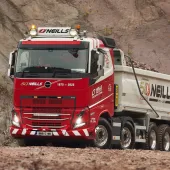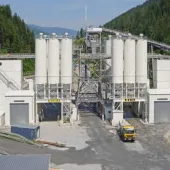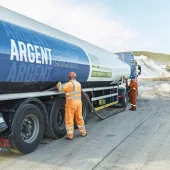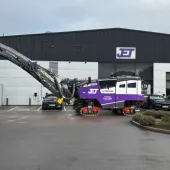Supplying Materials Safely
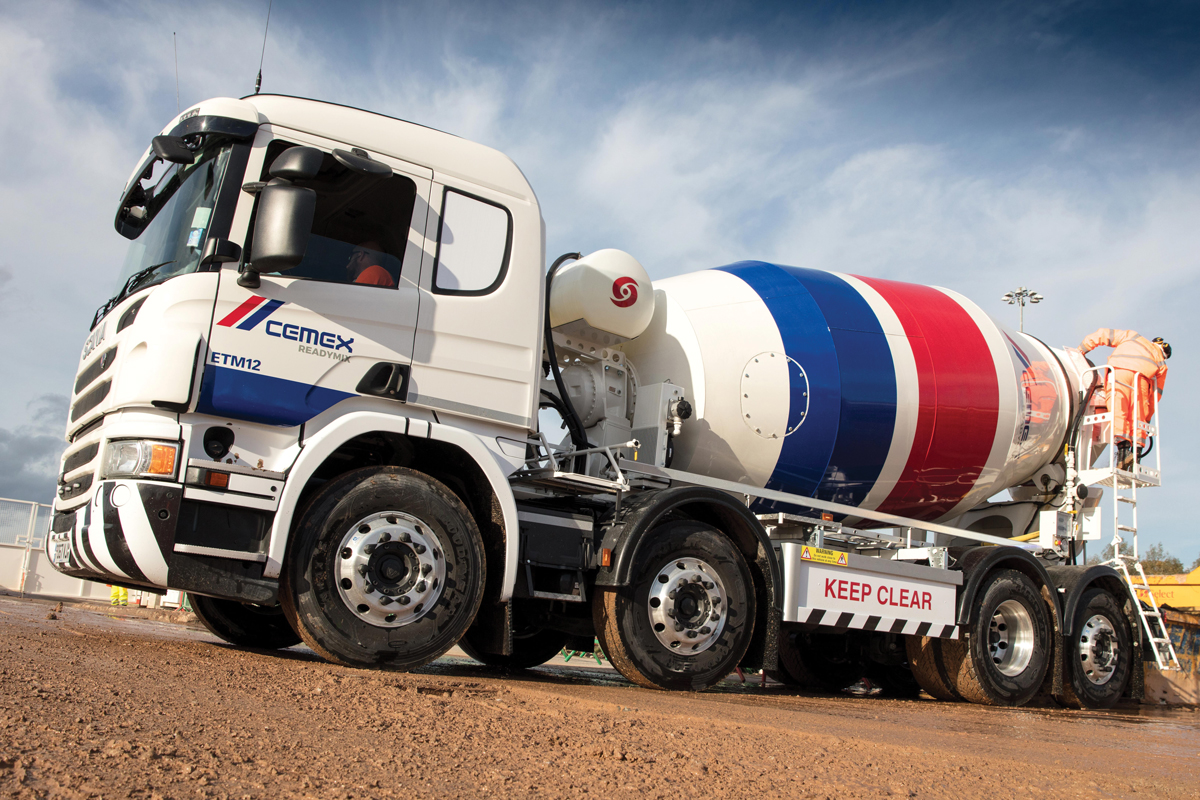
First published in the April 2020 issue of Quarry Management
David Hart, UK supply chain director with CEMEX, examines current health and safety challenges in the industry, and what operators need to do to lead in this area
Every day, thousands of large goods vehicles (LGVs) travel the country supplying aggregates and building materials to construction projects and customers. Last year, CEMEX UK’s 900-plus trucks travelled over 41 million miles – the equivalent of going to the moon and back more than 80 times. The wide variety of people and circumstances these vehicles encounter present their own challenges; whether that is congested roads, other drivers, vulnerable road users, site constraints and delivery challenges.
As operators, we must all view the safety of our drivers and those who interact with our vehicles as paramount and work hard to manage and eliminate work-related road risk wherever possible. The repercussions of any failure to do this can be life-changing and we must never become complacent.
Perhaps one of the greatest areas for risk is when our vehicles move alongside members of the public – particularly in busy metropolitan areas including our great capital city. Many pedestrians and cyclists are just not aware of the limited visibility afforded from the cab of a truck.
Education is absolutely vital here, both on the part of the driver and the vulnerable road user. Externally, CEMEX work with a wide variety of organizations and groups across the road safety arena, including Direct Vision, Roadpeace, Brake, TfL, the Met Police and RoSPA, participating in their campaigns and maximizing opportunities to promote road safety awareness. Over the last year, this has included launching our pedestrian road safety campaign, which features powerful awareness videos for both truck drivers and pedestrians, and promoting our industry road safety strategy at speaker forum events at RoSPA and Highways England conferences and exhibitions.
The bright livery of our vehicles is a powerful tool too; more than 60 CEMEX vehicles are liveried with our ‘Don’t Chance It’ branding and we are often contacted by people who have seen it and been reminded of the need for care. Operators should remember that their vehicle itself can play an important role in alerting other road users to their presence and reiterating important messages.
Wherever possible, businesses should seek to build relationships with the communities they operate in to build on a shared interest in improving road safety and to share knowledge of the industry and the challenges of sharing our road spaces safely. Over the last year, CEMEX have held road safety sessions at educational institutions across the country, giving children of all ages the chance to get into the cab, experience the driver’s visibility for themselves and get a refresher on the Green Cross Code and other aspects of road safety.
It is not possible to beat this hands-on engagement to educate vulnerable road users and foster goodwill in the areas where we operate. We estimate that we reached more than 8,000 children and young people last year, who will hopefully then have gone home and spoken to their own families. Moving forward, we also plan to run similar sessions for groups of older pedestrians.
Internally, it is important to ensure all drivers are thoroughly trained, particularly for those working in urban areas, with regular refreshers. CEMEX are renowned for their dedication to safety and are a CLOCS Champion and a FORS Gold operator. All of the company’s drivers are Safe Urban Driving approved, undergo annual in-cab driving assessments and are monitored through vehicle telematics to ensure a safe and efficient driving style. Meanwhile, all CEMEX’s contract hauliers are required to have FORS accreditation and have to comply with the Mineral Products Association’s industry vehicle safety features.
A further crucial part of road safety is ensuring vehicles are fitted with the latest technologies and features, such as camera systems for all-round visibility, tyre pressure sensors and audible sensors to warn drivers of vulnerable road users. With the introduction of the Direct Vision Standard in London last autumn, businesses must ensure their vehicles are road safe if they want to continue to operate in the years to come. In London, CEMEX operate a number of low-cab tipper vehicles to provide the driver with increased visibility when operating in this densely populated urban environment.
This can present its own challenges, as currently many truck manufacturers are not fitting the latest safety features as standard; instead, operators have to buy a vehicle and then retrofit the required systems before use. Together, we must encourage truck manufacturers to factory fit these important features, incorporating them into the vehicle design, providing reliability, dealership backup and making them standard across the industry.
Looking at the different pressure points during delivery, other opportunities for increased safety present themselves. CEMEX have recently introduced a number of trucks with non-tipping belt trailers on our clay supply route between Southam Quarry and Rugby Cement Plant. These ensure there is no risk of truck rollover or collision with buildings if the body is not lowered. In addition, the driver can control the process by remote control from inside the cab – further increasing safety and minimizing potential risk.
However, in our efforts to focus on safety, we must not neglect the health of the drivers who operate our vehicles. The impact of driving an LGV on health, particularly for those who travel for long distances, can be considerable – from issues with mental health to unhealthy lifestyle with poor diet, disturbed sleep and lack of exercise. With the driver shortage currently being experienced in the industry, it is key that we make this an attractive, safe and healthy occupation.
It is the role of the operator to foster an environment where drivers feel their health is taken seriously. At CEMEX, we provide biannual health tests for all employees and run regular awareness campaigns around key issues such as fatigue, heart health and diabetes. Lone working can also present risks for drivers, so this should be taken into account – many of our drivers use a wireless safety system, particularly beneficial when working at night.
Drivers can also be affected by the increasing constraints on operating hours at delivery sites – and this can have wider implications for safety too. CEMEX are finding that demand for product is on the increase, while the window for delivery is often less than six hours. It is important to work with customers to create out-of-hours opportunities. Not only does this lessen pressure on the driver, but it also minimizes congestion on roads at busy times. CEMEX have had significant success with their out-of-hours performance – in cement, about 40% of the volume supplied to their internal ready-mixed concrete customers goes at night – this equates to close to 2,000 tonnes per night.
The use of rail as a method of transport is of growing importance here too – plus it provides considerable sustainability benefits. Rail is a far more environmentally friendly method of transport than trucks on the road, as a train burns significantly less fuel per ton-mile than road vehicles, saving around 50% in CO2 emissions. On average, one gallon of fuel will move one tonne of goods 246 miles on the rail network, while the same amount will only achieve 88 miles by road. Rail is a huge area of growth for CEMEX’s aggregates division – currently the business transports 2.6 million tonnes of aggregate by rail each year, which equates to approximately 100,000 trucks off the road; enough to build 40,000 houses.
While there are considerable health and safety challenges for logistics operations in the construction industry, we are fortunate to work for a sector that is taking its responsibilities seriously. Vehicles are becoming ever more advanced with superb features; campaign groups and key organizations are passionate and committed to reducing road traffic incidents and working with stakeholders such as operators to educate and inform; and there is an increased awareness of the importance of mental and physical health. Together, we can work to meet these challenges and keep our colleagues and members of the public safe.
- Subscribe to Quarry Management, the monthly journal for the mineral products industry, to read articles before they appear on Agg-Net.com


